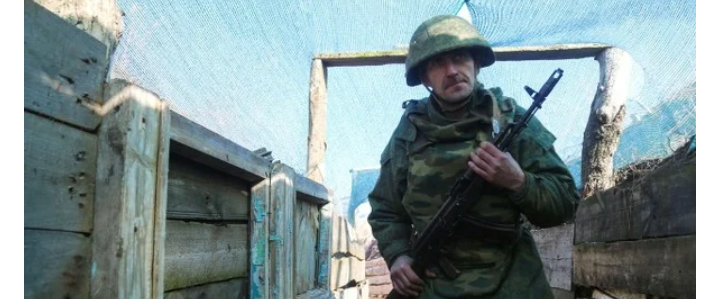
Donetsk And Luhansk At The Heart Of The Ukraine, Russia Bloody War.
With UP TO 190,000 Russian troops poised to invade Ukraine, President Vladimir Putin said on February 21st that Russia would “immediately” recognise the independence of two breakaway regions in the east of the country.
In a piece of televised theatre, Mr Putin had members of his national security council declare that they favoured the move. Later, after a long speech, he signed agreements on “friendship, co-operation and mutual aid” with the leaders of the would-be statelets, the “people’s republics” of Donetsk and Luhansk.
Mr Putin urged parliament, which had advocated the move earlier this month, to ratify the decision quickly. Donetsk and Luhansk, part of the Donbas region dominated by Russian-speakers, have since 2014 been controlled by separatists and so, in effect, by Russia.
Why do these regions matter? And how might Russian recognition of their independence alter the course of the crisis?
The military tension over Ukraine dates to the “Maidan Revolution” in February 2014, when Viktor Yanukovych, Ukraine’s Russian-backed president at the time, fled from Kyiv after months of street protests.
Russia responded by taking over and annexing Crimea, in the south, in March. Hostilities soon erupted in eastern Ukraine, where a patchwork of poorly co-ordinated militias began seizing government buildings throughout Donetsk and Luhansk in April.
These groups, which were almost entirely composed of disgruntled locals and sympathisers from elsewhere in Ukraine, declared independence in May 2014 as the Donetsk People’s Republic and the Luhansk People’s Republic.
Together, the would-be statelets regarded themselves as “Novorossiya” (New Russia)—a revived term for southern Ukrainian territory conquered by the Russian empire in the 18th century.
Ukrainian forces went on the offensive, and appeared poised to retake the separatist-held territories.
But Russian reinforcements rolled in from across the border, knocking the Ukrainians back and threatening to push farther into the country’s heartland. A hasty peace deal between Ukraine, Russia and the separatists halted the onslaught.
But this agreement, known as Minsk I, soon broke down. By January 2015 full-scale fighting had broken out again. Germany’s chancellor, Angela Merkel, and France’s president, François Hollande, stepped in to revive the ceasefire, brokering a “Package of Measures for the Implementation of the Minsk Agreements”, known as Minsk II.
That left large swathes of Donbas under separatists’ control. A 500km “line of contact”, bristling with trenches and landmines, cuts through it.
Despite the presence of foreign observers to monitor the ceasefire, it has never been entirely quiet. More than 14,000 people have been killed there since 2014.
Amid Western warnings that Russia was seeking to create a pretext to justify invasion, shelling along the line of control has increased dramatically this month.
Leaders of the breakaway regions have begun moving civilians to Russia, while holding back men of fighting age. Ukraine dismissed as fake news Russian reports that it had sent saboteurs and armoured vehicles into Russia proper.
The Minsk accords envisaged Ukraine re-absorbing Donetsk and Luhansk with a “special status”. How special this should be was left undefined, as was the sequence of steps and the question of whether the people of Donbas displaced by the conflict should have a say in its future.
For Russia Minsk would create a Trojan horse to give it control of Ukraine, either by destabilising the country from within or through constitutional changes that would give Russia a veto on Ukraine’s shift to the West. For Ukraine that is a poisoned pill it has refused to swallow since 2015.
Russian recognition of Donetsk and Luhansk as independent entities would amount to something close to annexation, since the “republics” would be full of newly minted Russian citizens. Russia has distributed hundreds of thousands of passports to residents of Donbas, many of whom voted last year in Russia’s parliamentary elections.
But as Mr Putin’s session with the national security council made clear, Russia is not formally integrating the statelets into Russia proper.
Ukraine and the West have already protested over the prospect of Russia’s redrawing of international borders by force. But if recognition is where Mr Putin stops, Ukraine might quietly heave a sigh of relief because it would further detach the troublesome regions from its internal workings.
Yet it seems unlikely that Mr Putin will declare victory and walk away. The bill passed by the Duma authorises the Russian government to “protect” residents there from “external threats”.
More worrying still, separatist leaders claim sovereignty over swathes of Ukrainian land that they do not control. If Mr Putin were to accept those claims, he would have even more pretexts to keep meddling in Ukraine.
